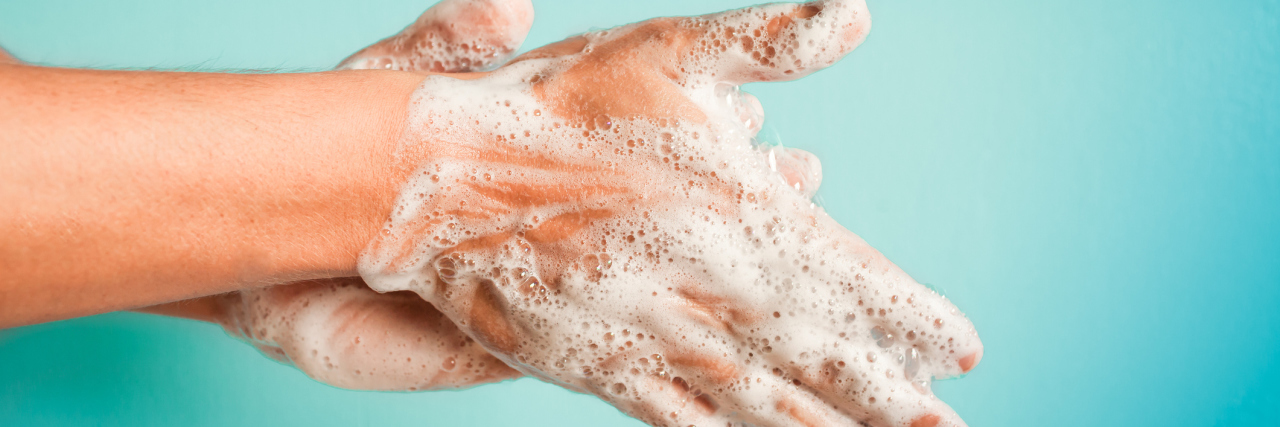What to Do If the Coronavirus Health Guidelines Are Triggering Your Anxiety or OCD
The World Health Organization (WHO) has classified the ongoing worldwide outbreak of the coronavirus (COVID-19) as a pandemic. COVID-19 is a new-to-humans viral strain in the coronavirus family that affects the lungs and respiratory system, causing symptoms like dry cough, fever and shortness of breath.
In response, public health experts around the world have asked us to take action to prevent and limit the transmission of this disease. This may create unique challenges for those of us diagnosed with a mental health condition, especially OCD, anxiety and related disorders. We must work to balance what’s best for population health with what is best for our individual mental health.
COVID-19 is causing anxiety, panic and unrest across the globe with new guidelines and recommendations being published and changed frequently. For people in the OCD and related disorders community, these guidelines might cause extra concern, anxiety and/or uncertainty. A lot of the guidelines aren’t specific or definitive, leaving a lot of space for OCD fears and anxiety behaviors to take over.
For many of us living with a mental health condition, the current situation may be worsening or intensifying your symptoms. For people in treatment, specifically for OCD, the guidelines might feel contrary to what you have been working on with your treatment team. Below are some simple steps to reconcile what’s recommended for public health while maintaining our mental health:
1. Limit your news and updates to ONE verified, trusted source (such as the WHO if international, and the CDC if in the United States).
2. Put a time limit on how long you spend looking at this trusted source, including the number of times you consult them per day.
- Focus on the facts these sources are telling you, rather than emotions you or others may be feeling about them.
3. Avoid searching online, media sourcing or having conversations throughout the day around the virus as this will cause increased anxiety that may lead to panic.
4. Give yourself permission to set a basic safety plan based on the recommendations of trusted health organizations, and do not add to it:
- Disinfect surfaces once a day.
- Wash your hands with soap and water for 20 seconds after being outside or in public, before eating and after you’ve coughed/sneezed/blown your nose. If soap and water are not available to you, use hand sanitizer that contains at least 60% alcohol.
- If you want to do more than this, pick a person to help you figure out what might be a reasonable and rational safety measure to take.
- Engage in quarantine if recommended by a credible source (CDC or WHO) due to your level of exposure.
5. Stick to (or create new) healthy habits — exercise, good nutrition and quality sleep are all helpful things for both your mental and physical health.
6. Take breaks and allow yourself to do things you enjoy.
7. Maintain your daily routines as much as possible, and take comfort in them.
8. If you are currently in treatment, stay in treatment and talk about COVID-19 with your provider and how it may be affecting you.
If you are not currently in treatment, live with OCD and are experiencing increased symptoms, consider reaching out and getting connected to someone. The IOCDF’s Resource Directory is an excellent place to start, and you are welcome to call or email The Peace of Mind Foundation if you need help navigating it.
Most importantly: Be kind to yourself in these extraordinary times.
Below are some steps you should not do: in the midst of this pandemic:
1. Avoid the temptation to learn “everything” about COVID-19.
2. Do not ignore the guidelines from trusted health sources, regardless of whether or not they go against what you are trying to do in treatment. Work with your treatment team to bring your goals temporarily in line with the new normal we all live in.
3. Do not excessively wash your hands, as this may lead to injuring your skin and making it less protective against infection. Keep it to 20 seconds.
4. Don’t let “social distancing” rob you of your support networks — come up with a strategy to stay connected to others even if you can’t see them in person.
- Call, videoconference, or text your friends and family.
- Get involved in online support networks (such as HealthUnlocked).
- Reach out on social media.
5. Don’t let OCD or anxiety make decisions for you. Instead, listen to official regulations and/or warnings from the CDC and the WHO, these organizations have worldwide travel advice, and the US Department of State issues travel advisories for its citizens.
COVID-19 is real, but so is OCD and anxiety. Work hard and together with your provider to differentiate between guidelines and recommendations for COVID-19 and your anxiety/OCD. Guidelines and recommendations should be followed and are healthy during this time, OCD and anxiety rules and rituals are not. For those of us living with OCD this time often comes with heightened anxiety, symptoms and even confusion. Try to follow the guidelines above and remember to continue with your treatment, especially if you are noticing increased symptoms. Tele-therapy is often a viable therapy option if in-person meetings are not feasible currently. Remember, help and hope are always available.
This article was written by: Elizabeth McIngvale, Ph.D., LCSW, Co-Director, Houston OCD Program, Founder, The Peace of Mind Foundation, Jeff Szymanski, PhD, Executive Director, International OCD Foundation, and Stephanie Cogen, MSW, MPH, Program Director, International OCD Foundation.
Concerned about coronavirus? Stay safe using the tips from these articles:
GettyImages photo via kieferpix

